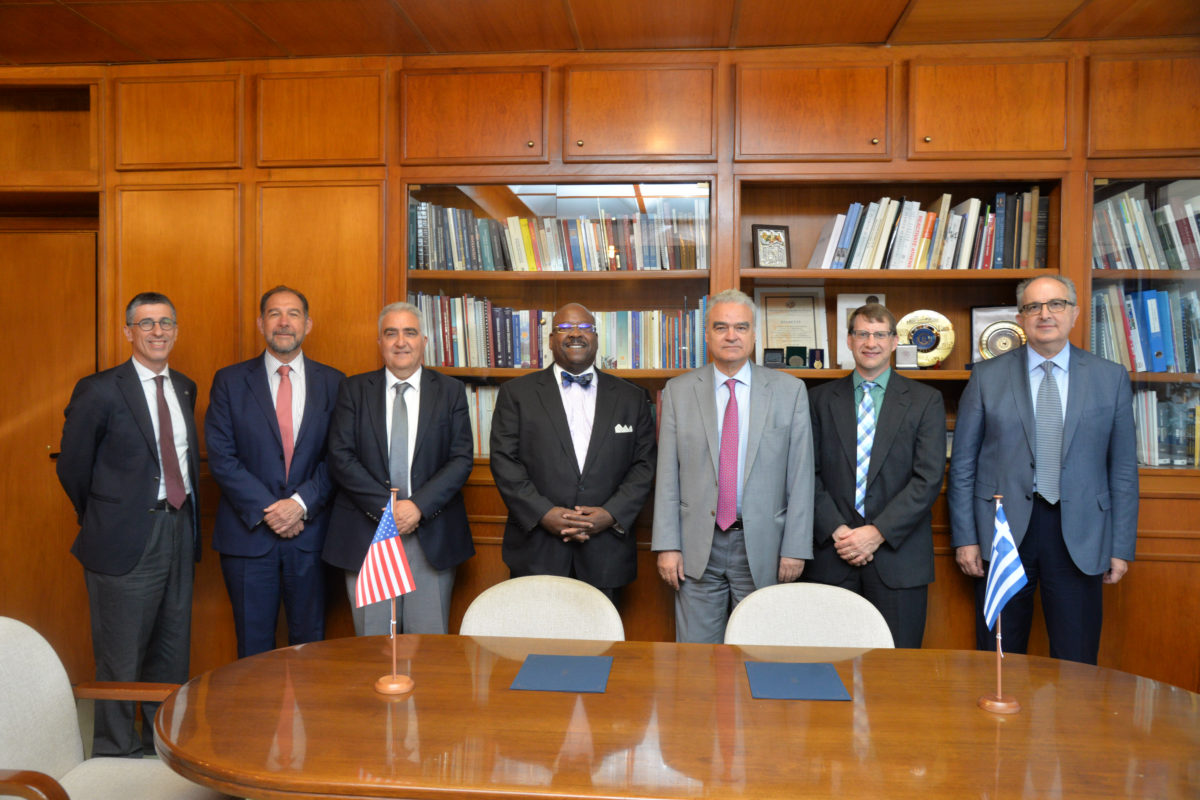
During the week of July 1, the Texas A&M Transportation Institute (TTI) signed memoranda of understanding with both the Hellenic Institute of Transport (HIT) at the Aristotle University of Thessaloniki (AUTh) and the National Technical University of Athens (NTUA). The purpose of the two agreements is to jointly collaborate in advancing transportation research, technology transfer and education to enhance mobility.
The delegation traveling to Greece from TTI included Agency Director Greg Winfree; Senior Research Engineer and Mobility Division Head Bill Eisele; and Juan Villa, research scientist and head of TTI’s Mexico City Office.
In addition to the MOU signings at both institutions, the TTI delegation participated in a summer school hosted by HIT in collaboration with the AUTh Department of Mechanical Engineering and the Texas A&M Engineering Experiment Station (TEES), a sister agency of TTI within The Texas A&M University System. The school was targeted to international postgraduate students, graduate students and young researchers in Greece pursuing careers in digital supply chain management or are interested in innovative research and trends in the supply chain and logistics fields.
In addition to supply chain and logistics research activities, TTI and HIT could pursue joint research into intelligent transportation systems, big data analytics, sustainable urban mobility, and autonomous vehicle applications, among other topics.
The MOU between NTUA and TTI focuses on joint activities in the areas of connected and automated mobility, ports, railways, safety, pavement engineering and related transportation issues and opportunities.
“We are pleased to be working with our partners at both of these institutions, as well as our sister agency, TEES,” said Winfree. “There are numerous opportunities to collaborate on joint research and innovation activities to share our knowledge internationally and help educate the next generation transportation workforce in both of our countries.”
Other activities under the MOUs could involve collaborating on conference presentations and papers; jointly developing and conducting academic and professional training programs; and fostering faculty, researcher, and student exchanges.